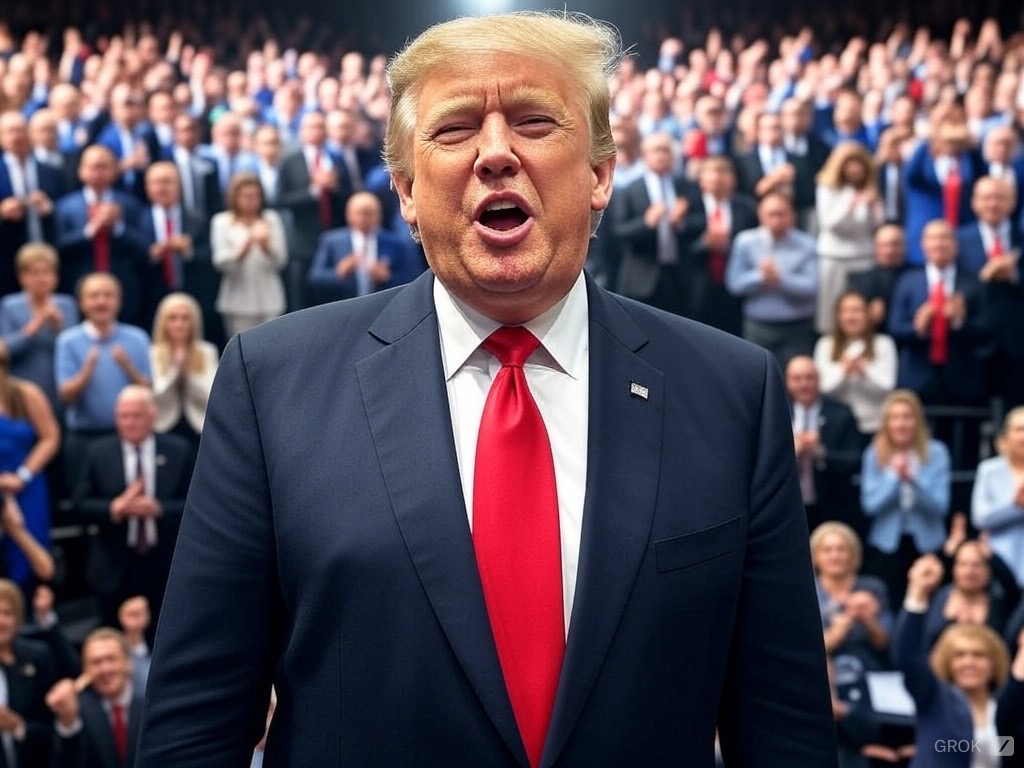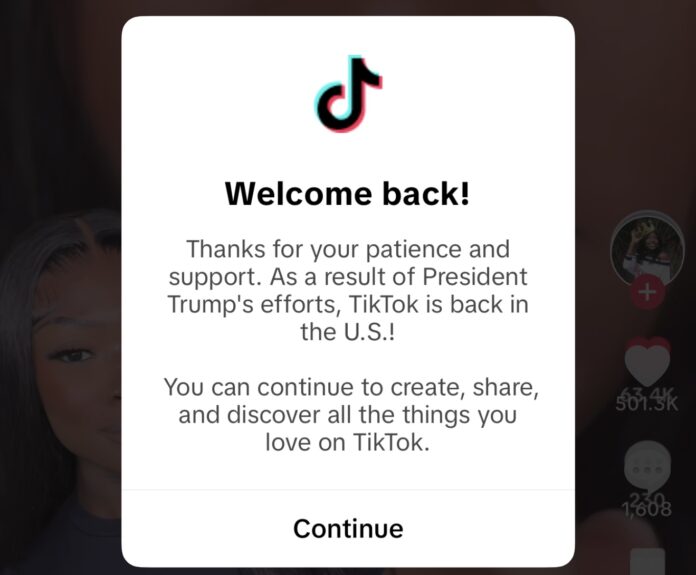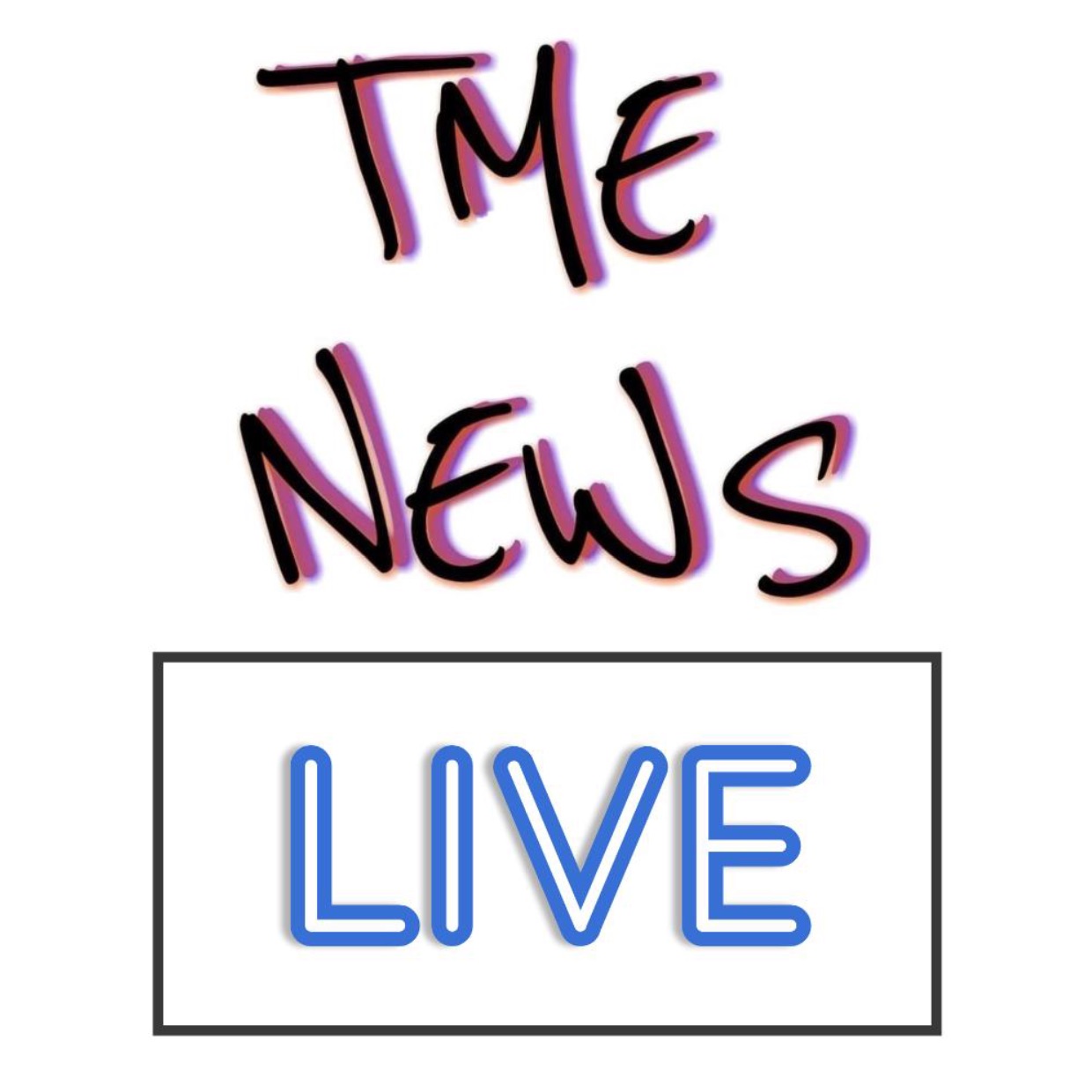In a dramatic turn of events, TikTok, the social media app beloved by millions of Americans, has made a comeback in the United States after facing the brink of a nationwide ban. The app’s future in the country had been uncertain for years, with government officials citing concerns about national security due to its parent company, ByteDance, being based in China. However, a surprising announcement by former President Donald Trump has signaled a resolution, ensuring TikTok’s continued presence in the U.S.
President Trump, who was instrumental in raising the initial concerns about TikTok, has now stated that he will work to help the app maintain its foothold in the United States. His commitment to keeping TikTok in the U.S. has sparked a renewed debate about the platform’s importance to American culture, business, and the tech landscape.
TikTok’s Rocky Road in the U.S.
TikTok’s journey in America has been anything but smooth. The app first came under scrutiny in 2020, during Trump’s presidency, when an executive order sought to ban the platform unless ByteDance divested its U.S. operations. Concerns revolved around the possibility of American user data being accessed by the Chinese government, potentially threatening national security.
The proposed ban created widespread uncertainty, leading to negotiations between ByteDance and several American companies. Oracle and Walmart were poised to take over TikTok’s U.S. operations in a deal that would satisfy the government’s demands, but the agreement was never finalized.
After President Joe Biden took office, the urgency surrounding TikTok seemed to subside, although investigations into the app’s data practices continued. ByteDance proposed several measures to address U.S. concerns, including the establishment of U.S.-based data servers under “Project Texas.” However, TikTok’s future remained unclear, with some lawmakers continuing to push for an outright ban.

President Trump’s Surprising Shift
Former President Trump’s recent announcement that he would support efforts to keep TikTok in America has added an unexpected twist to the saga. Trump, who once championed the ban, now views the platform as an asset to American businesses and a vital outlet for free expression.
In a statement, Trump said, “TikTok is a platform that has brought joy to millions of Americans. It has become a space for creativity, business, and connection, and I believe we can find solutions that address security concerns while keeping it accessible to our people.”
This shift in Trump’s stance has been met with mixed reactions. Critics question whether his involvement is politically motivated, while supporters argue that his influence could help resolve the impasse and create a framework for ensuring data security without sacrificing the app’s availability.
Why TikTok Matters to Americans
TikTok has become a cultural phenomenon in the United States, boasting over 150 million active users. Its short-form video format has redefined social media, enabling users to share everything from dance challenges to educational content.
For creators, TikTok has been a game-changer, offering a platform to grow their audiences and generate income. Small businesses have also embraced TikTok, using its algorithm to reach niche markets and boost sales.
The app has even played a role in political activism, with users organizing movements and spreading awareness about social issues. Its ability to connect people across demographics has made it a cornerstone of digital culture.
The Business Implications of TikTok’s Return
TikTok’s potential ban had raised concerns among American businesses, particularly those that rely on the platform for marketing and outreach. A ban would have disrupted countless creators and advertisers, forcing them to migrate to alternative platforms like Instagram Reels or YouTube Shorts.
By ensuring TikTok’s return, President Trump and other advocates have provided relief to these stakeholders. The decision also underscores the app’s economic impact, with estimates suggesting that TikTok contributes billions of dollars to the U.S. economy annually through advertising revenue and job creation.
Addressing National Security Concerns
While TikTok’s return is good news for its users and businesses, the underlying national security concerns cannot be ignored. Critics argue that ByteDance’s ties to China pose a risk, despite the company’s repeated assurances that it does not share user data with the Chinese government.
To address these concerns, ByteDance has committed to implementing stricter data security measures. The centerpiece of these efforts is “Project Texas,” a plan to store all U.S. user data on servers operated by Oracle, a trusted American company. This initiative aims to prevent unauthorized access to user information and alleviate fears of foreign interference.
The Role of American Companies
The involvement of American companies like Oracle and Walmart in TikTok’s operations is a key part of the solution. These partnerships not only provide oversight but also create opportunities for U.S.-based innovation and investment in the platform.
Trump has expressed his support for these collaborations, emphasizing the importance of keeping TikTok’s economic benefits within the U.S. “By involving American companies, we can ensure that TikTok operates transparently and securely while contributing to our economy,” he stated.
Public Reaction to TikTok’s Return
The announcement of TikTok’s return has been met with widespread celebration, particularly among younger users who view the app as an essential part of their daily lives. Social media platforms have been flooded with posts expressing relief and excitement, with hashtags like #TikTokIsBack trending nationwide.
For creators, the news is a lifeline. Many had already started diversifying their content to other platforms in anticipation of a ban, but they now feel optimistic about TikTok’s future. Small business owners have also welcomed the decision, citing the app’s unique ability to drive customer engagement and sales.
What’s Next for TikTok?
While TikTok’s return is a major victory, it marks the beginning of a new chapter rather than the end of the story. The app will need to navigate ongoing regulatory scrutiny and prove its commitment to data security.
Trump’s involvement has added a layer of complexity to the situation, as his influence may reignite political debates about the platform. However, his support also brings visibility and urgency to the issue, potentially accelerating efforts to find a lasting solution.
For TikTok, the focus will likely shift to rebuilding trust with both users and regulators. Transparency will be key, as will continued collaboration with American companies and policymakers.
Conclusion
TikTok’s journey in the U.S. has been a rollercoaster, marked by uncertainty and controversy. The app’s triumphant return, bolstered by former President Trump’s support, is a testament to its cultural and economic significance.
As TikTok moves forward, it must address the challenges that led to its near-ban while continuing to innovate and inspire. For now, users and businesses can breathe a sigh of relief, knowing that their favorite platform is here to stay.
TikTok’s comeback is not just a victory for its users—it’s a reminder of the power of collaboration and the importance of balancing security with innovation in an interconnected world.


